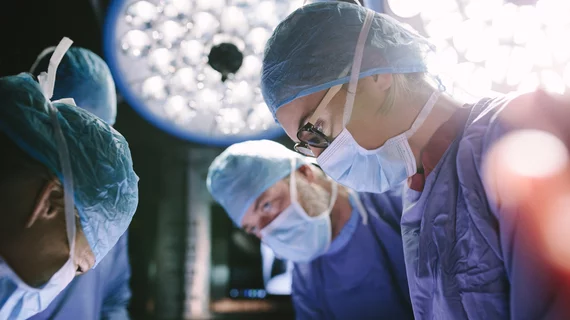1st US center performs PCI using Impella 5.5
Hackensack University Medical Center is the first practice in the U.S. to successfully perform heart surgeries using Abiomed’s Impella 5.5 left ventricular assist device (LVAD).
The Impella 5.5—a short-term LVAD designed to help the heart pump for up to two weeks after a CV event or heart surgery—recently received pre-market approval from the FDA for the treatment of cardiogenic shock. The pump is inserted into the left ventricle either through the axillary artery or directly into the anterior aorta during percutaneous coronary intervention (PCI).
The device’s latest updates include a fully unloading and forward flow design—meaning it can pump blood at a peak flow of greater than six liters per minute—a thinner, shorter motor housing and SmartAssist technology, which provides physicians with data like LV pressure, end-diastolic pressure and cardiac power output. Clinicians can access any of that data at any point through Impella Connect, an online database.
“A minimally invasive, forward flow, fully unloading heart pump that is designed for surgery is game-changing,” Mark Anderson, MD, said in a statement. Anderson is a cardiothoracic surgeon and chief of cardiac surgery at the Heart and Vascular Hospital at Hackensack University Medical Center and Hackensack Meridian Health.
“This gives cardiac surgeons a new and potentially better option that can provide the benefits of heart recovery to some of our sickest patients.”
At this point, four patients have received the Impella 5.5 at Hackensack and are “recovering as expected” after PCI.
“This minimally invasive treatment option enables a patient’s heart to rest and ultimately recover, improving the patient’s long-term quality of life compared to other therapies,” Joseph Parrillo, MD, chairman of the Heart and Vascular Hospital, said in the statement.

